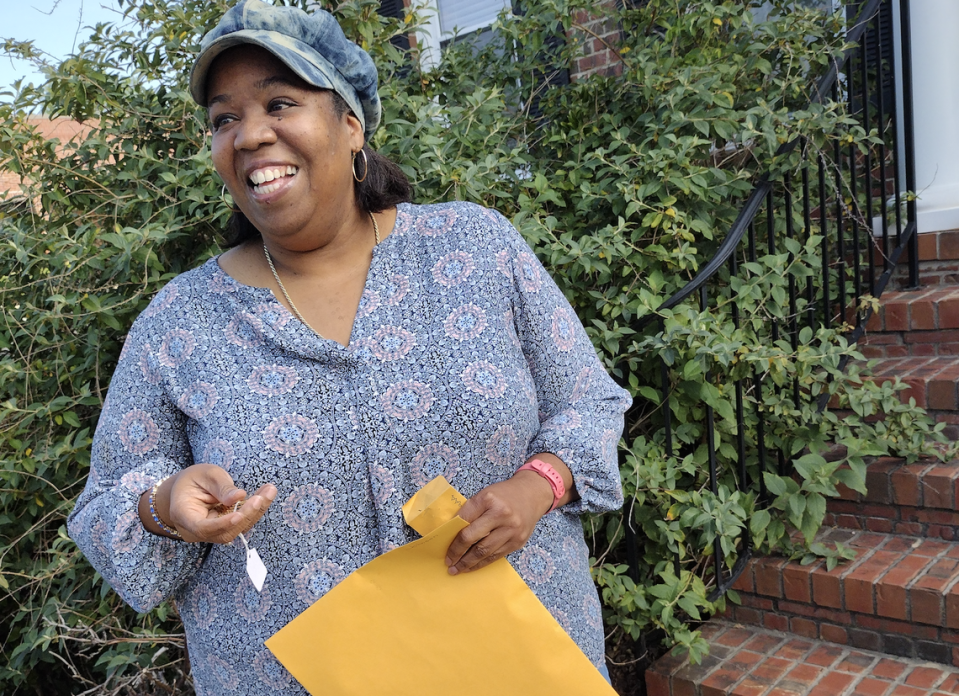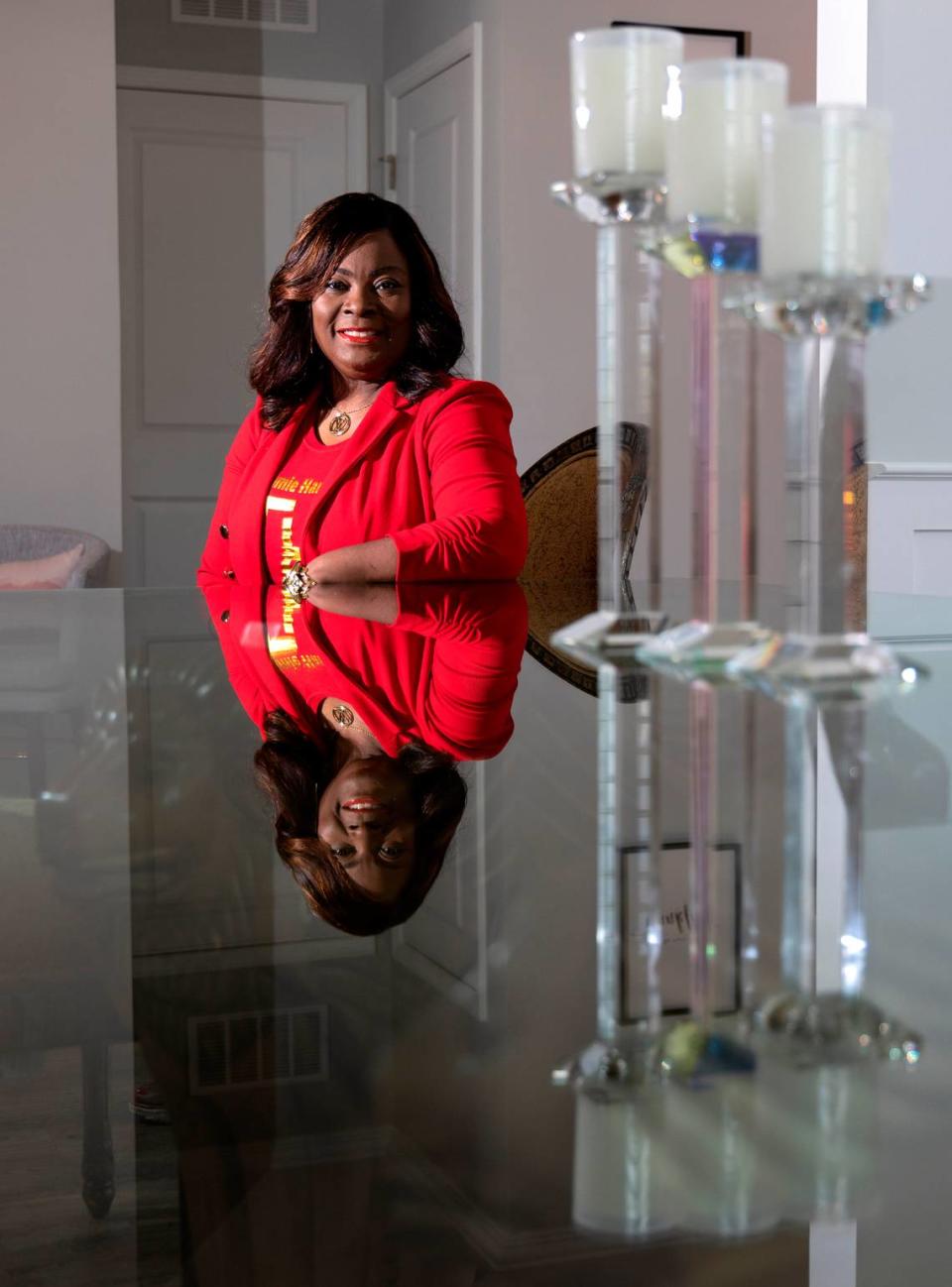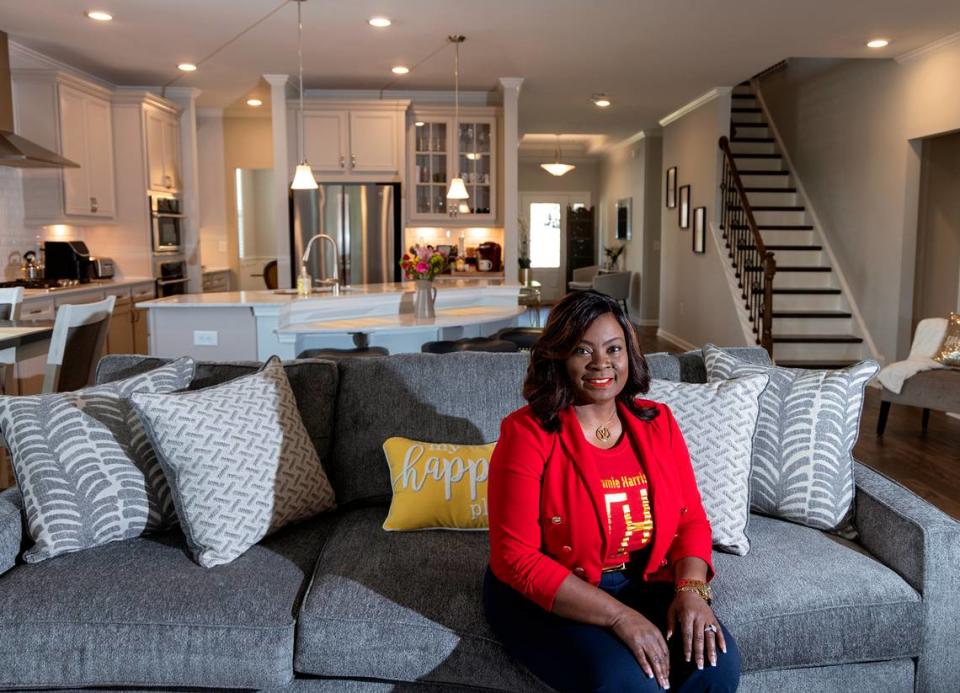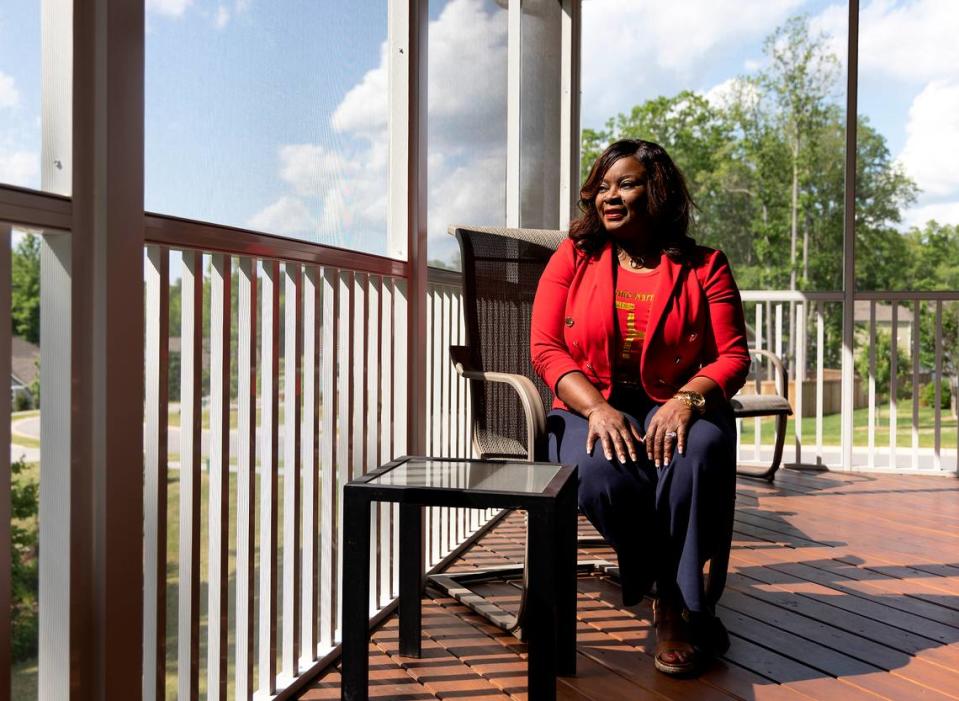Only 3 percent of US homebuyers are Black. How one NC woman beat the trend at 53.
At 53, Teresa Johnson had just about given up on becoming a homeowner.
Three years of searching for a starter home in the Triangle, plus decades of renting, had left her beaten down and jaded. But her luck changed last month when she closed on a three-bedroom, three-bathroom townhome in Selma, for $245,000.
Though she now commutes 100 miles, round trip, to get to work in Morrisville, she works mostly from home and says it’s worth it. She paid no due diligence fees or over-asking price. The seller paid closing costs.
“It’s surreal, especially in this type of market, when you’ve been waiting so long,” said the medical communications director, a native New Yorker, who moved to the Triangle in 2010.
First-time buyers in the Triangle have never had it harder as inflation, higher mortgage rates and soaring home prices keep the dream of homeownership out of reach for many across the Triangle and nationally.
Across the U.S., the share of first-time homebuyers dropped to a record low, according to the National Association of Realtors (NAR), making up 26% of all buyers in 2022, down from 34% last year.
But it’s even harder for Black homebuyers like Johnson. In 2022, the typical first-time buyer getting keys to a starter home was 36 years old, an all-time high, and white (88%). About 16% of U.S. adults identify as non-Hispanic Black or African American, but just 3% of buyers are Black — down from 6%.
And while the U.S. homeownership rate increased to roughly 66% in 2021, the rate among Black Americans lags significantly (44%), only increasing 0.4% in the last 10 years, NAR reported in another study.
That’s nearly 29 percentage points less than white Americans (72.7%), representing the largest Black-white homeownership rate gap in a decade. Less than 10% of Black renters can afford to buy the typical home.

First-time buyer programs
Somehow, Johnson, single and living alone, bucked this trend.
This week, she’s still unpacking her boxes after moving in earlier this month, marveling that for the first time in her life she doesn’t need permission to paint an accent wall or use nails to install a wall hanging, in fear of losing the deposit. “I keep pinching myself, is this really true?”
For years, she’d been paying $1,100 a month to rent a one-bedroom, one-bathroom apartment in Morrisville. But after the landlord hiked her rent by an additional $200, to more than $1,300 a month, she’d had enough, picking up her search once again.
Encouraged by her sister, a homeowner herself, she worked on her credit score. Through her loan officer and realtor, she also learned about first-time buyer programs — such as the Federal Housing Administration (FHA) loan, a government-backed mortgage loan designed to help low- to moderate-income families buy a home with looser financial requirements. It allowed her to only put 3.5% down and pool funds from her 401(k), she said.
She got preapproved for up to $275,000. At that end of the scale, she was priced out of her neighborhood, so she expanded her search to more rural, outlying towns, like Selma.
That’s where she found her forever home, she said. It’s a new-build townhome in a growing neighborhood. “When I came into the house, I felt so much peace. I knew, this is the house for me. I love driving up, having my own parking space. There’s just a lot of pride.”
‘Got to see it to believe it’
Beyond affordability, Black and Hispanic homebuyers also face extra challenges in getting a mortgage.
According to Home Mortgage Disclosure Act data, 20% of Black and 15% of Hispanic loan applicants were denied mortgages, compared with about 11% of white and 10% of Asian applicants. Denial rates are even higher for home improvement loans.
For many Black homebuyers, like Johnson, success often hinges on finding the right person to guide them over such barriers. Oftentimes, it’s someone who looks like them.

Tammie Harris, 54, is the chief executive of her own eponymous brokerage firm, managing a team of 17 across three offices in North Raleigh and Franklinton. For the last 17 years, she’s made it her business to target would-be Black buyers, educating them about the process and financial assistance programs. On her LinkedIn account, she calls herself the “Oprah Winfrey” of real estate. About 75% of her firm’s clients are African American.
“People say things like, ‘Pull yourself up by your bootstraps.’ But what if you don’t have any boots?” she said. “The gap is there because some people haven’t had the wealth, the knowledge, the education.”
“I’ve been there personally myself,” said Harris, who grew up poor in a mobile home park in Greenville, North Carolina. Her family eventually relocated to Rocky Mount, trading farming for industry work, but they still struggled for stable housing. “In my life, I’ve moved a total of probably 27 times. We’d literally get padlocked out. Instead of coming up with all the back rent, they’d just take the money they had and move to a new place.”
That wasn’t going to be her, she promised herself. In 1995, at 27 and then working as a social worker, she bought her first home with her then husband. They paid $89,000 for a three-bedroom, two-bathroom house with a mid-sized yard in Sharpsburg, about 45 miles east of Raleigh.
Eventually, the couple kept trading up, buying a second home in Winterville, and then a third in a gated community in Greenville, earning passive income on the side by renting out the others. “At that time, I didn’t have my real estate license. I was just a regular girl who grew up poor, realizing: ‘Oh, so this is how they do it.’ Nobody told me. Now it makes sense. I gotta tell everybody about this.”
Now remarried, she’s owned around seven properties on her own to date — and 13 combined with her husband, closing on their latest house in February. When clients get nervous, she reminds them: “When you’re paying rent, it’s 100% interest. I break it down so they come back to the table.”

‘Grab the key’
Harris keeps busy through outreach, setting up makeshift stands at charity runs and speaking at events like Grab the Key, a national program by Charlotte-based Movement Mortgage, aimed at closing the wealth gap.
April Russell, 43, a Raleigh-based mortgage loan officer with the firm, leads the program and works with many of Harris’ clients.
“Grab the Key” launched mostly “out of need” a few years back, she said. “It’s generational. If you haven’t seen something before, you don’t know that it’s obtainable,” she said. “It’s just a matter of having the boots on the ground to do something about it.”
Much of her time is spent offering credit guidance to improve scores — “a huge barrier” for many minority homebuyers, she said — and “debunking myths” about the process.
“Most people don’t realize and think they need 20% down to buy a home. Which, of course, is a myth,” she said. “In some cases, you can buy a house with no money down. There are different options out there. My goal is to be out in the community, spreading the information.”
She became a first-time homeowner herself at 27. She now owns a second investment property.
Her advice to homebuyers: Don’t stay sidelined forever.
“Get in where you can. That same house you see today will cost you more money six months from now or a year from now. It doesn’t have to be your forever home. It’s not like our grandparents who bought a house and lived in it for 50 years. No one does that anymore.”


